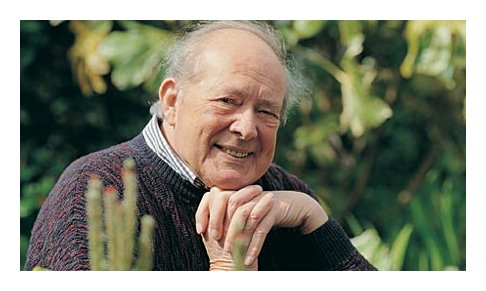
Composer Alun Hoddinott was born in Bargoed in 1929. His compositional talents developed early, and he won a university scholarship at the age of 16.
After graduating from Cardiff University, he studied for some years with the Australian composer and pianist Arthur Benjamin.
Hoddinott was awarded the Walford Davies prize for composition when he was 24, and achieved his first national success a year later, when his Clarinet Concerto was given its first public performance at the Cheltenham Festival by Gervase de Peyer and the Hallé Orchestra, under Sir John Barbirolli.
In 1951 he was appointed lecturer in music at the Welsh College of Music and Drama. He later became lecturer at Cardiff University and was made professor and head of department there in 1967.
Among his many awards were the John Edwards Memorial Award (he was the first recipient), the Arnold Bax Medal for composers, the Hopkins Medal of the New York St David's Society and the CBE. He was an honorary member of the Royal Academy of Music, and a fellow of the Royal Northern College of Music.
Hoddinott achieved a mastery of composition which embraces almost every musical medium. His strong creative urge, stimulated by a tremendous variety of eminent performers, is reflected in a substantial body of works. Essentially chromatic, his music often showed a dark Celtic intensity, manifested in his nocturnal slow movements.
As former professor of music at Cardiff University, and artistic director of the Cardiff Festival (which he co-founded with his friend, the pianist John Ogdon), he had considerable influence in awakening interest in contemporary music in south Wales. He also formed close and regular contacts in both the USA and Germany.
In 1997, during the Machynlleth Festival, he was given the Glyndwr Award for an outstanding contribution to the arts in Wales. In 1999 he received a lifetime achievement award from the Arts Council of Wales, along with fellowship of the Welsh Music Guild, and a medal from Queen Elizabeth II at the official opening of the Wales Millennium Centre.
In 2004, the BBC National Orchestra of Wales undertook a year-long season of Hoddinott's work to celebrate the composer's 75th birthday.
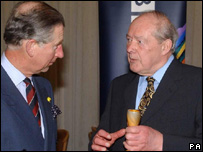 In 2005, he was made a fellow of the Welsh Music Guild
in recognition of both his major contribution to Welsh music and also
his support and membership of the Guild for over 50 years. That same
year he produced a fanfare to be performed at the wedding of Prince
Charles and Camilla Parker Bowles. He had previously composed
music to mark the prince's 16th birthday. [Hoddinott with Prince Charles in photo at
right]
In 2005, he was made a fellow of the Welsh Music Guild
in recognition of both his major contribution to Welsh music and also
his support and membership of the Guild for over 50 years. That same
year he produced a fanfare to be performed at the wedding of Prince
Charles and Camilla Parker Bowles. He had previously composed
music to mark the prince's 16th birthday. [Hoddinott with Prince Charles in photo at
right] On 1 March 2007, following the world premiere of his song cycle Serenissima, at Cardiff's St David's Hall, it was announced that the new recording space and performance hall of the BBC National Orchestra of Wales was to bear Hoddinott's name, making him the first Welsh composer to have a major concert venue named in his honour.
BBC Hoddinott Hall, which opened in the Wales Millennium Centre in 2008, allows an audience of up to 350 to enjoy performances involving the full orchestra and chorus that were not able to be staged at BBC Wales' studios in Llandaff.
Hoddinott's work has been performed all over the world by luminaries ranging from Sir Geraint Evans and Dame Gwyneth Lewis to Mstislav Rostropovich and John Ogdon.
Alun Hoddinott died on Wednesday 12 March 2008 at Swansea's Morriston Hospital.
-- BBC Wales Music (with
additions)
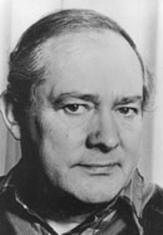 AH
AH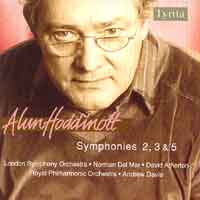 AH
AH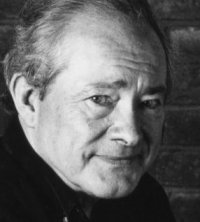 AH
AH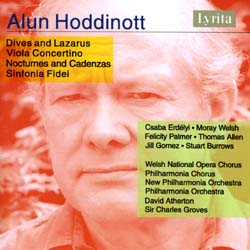 AH
AH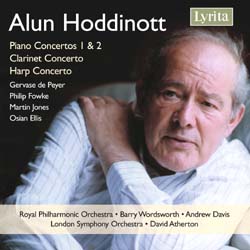 AH
AH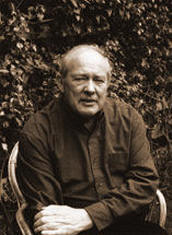 Although he dismissed the idea that he was a prolific
composer, Hoddinott was in fact legendary for his capacity to compose
at full stretch to tight deadlines, and his vast and versatile
catalogue runs to nearly 300 individual works, which include six
operas, 10 symphonies and over 20 concertos.
Although he dismissed the idea that he was a prolific
composer, Hoddinott was in fact legendary for his capacity to compose
at full stretch to tight deadlines, and his vast and versatile
catalogue runs to nearly 300 individual works, which include six
operas, 10 symphonies and over 20 concertos.